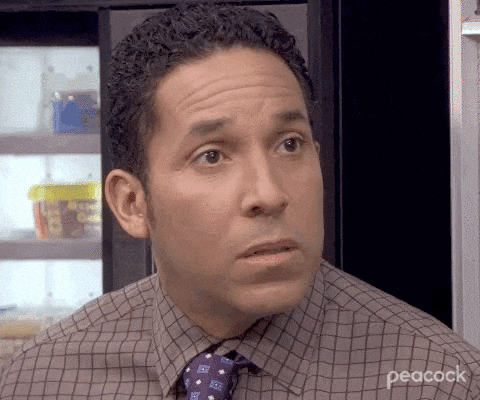The Biggest Hiring Mistakes Finance Leaders Make (And How to Avoid Them)
Hiring Shouldn’t Feel Like a Gamble – But For Many Businesses, It Does.

You spend weeks (sometimes months) searching for the perfect finance hire.
“We need someone experienced, commercially sharp, and a great cultural fit.”
You finally find them, get them through the process, they accept the offer…
Fast forward six months: They’re underperforming, unhappy, or already leaving.
If this sounds familiar, you’re not alone.
Hiring for finance roles isn’t just about finding someone with a solid CV—it’s about making sure they’re the right person for the role, the team, and the business.
Here are the biggest hiring mistakes finance leaders make—and how to avoid them before your next hire goes wrong.
1. Overvaluing Experience, Undervaluing Potential
Years of experience ≠ ability to do the job well.
Too many businesses still chase:
- “Must have 10+ years in a similar role.”
- “Big 4 background preferred.”
- “Must have industry experience.”
The problem?
- You shrink your talent pool. (And miss high-potential candidates.)
- You hire based on past performance, not future impact.
- You end up with someone who’s been doing the same thing for a decade—but isn’t growing.
How to fix it:
- Hire for adaptability, not just experience. Can they step up and grow?
- Assess problem-solving, not just technical ability. Give them a real-world scenario to tackle.
- Look for ambition. The best hires aren’t just looking for their next job—they want to drive change.
📢 Rule of thumb: A hungry, strategic hire with 80% of the skills will outperform an uninspired hire with 10 years of experience.
2. Taking Too Long to Make Decisions (and Losing the Best Candidates)
The best finance candidates aren’t waiting around for your process to drag on.
If you take too long to move, your competitors will snap them up first.
Common hiring delays:
- Too many interview stages. (Why do you need four rounds for a Finance Manager?)
- Waiting for the “perfect” candidate. (Spoiler: They don’t exist.)
- Delays in salary sign-off. (If you don’t know your budget before hiring, you’re already behind.)
How to fix it:
- Two interview stages max for most roles.
- Make an offer within 48 hours of the final interview.
- Set clear timelines from day one—don’t let the process drift.
📢 Rule of thumb: If your competitor’s hiring process is faster, that’s where the best candidates will go.
3. Hiring for Today, Not for the Future
Are you hiring someone to fill a gap—or to grow into a future leader?
If you’re only thinking about immediate needs, you’ll hire the wrong person for where the business is heading.
What companies get wrong:
- They hire based on a rigid, outdated job description.
- They don’t think about how the role will evolve in 12-24 months.
- They don’t assess leadership potential—even when hiring mid-level roles.
How to fix it:
- Think beyond the next 6 months. Will this person still be a great fit in 2 years?
- Hire for leadership potential. If they’re stepping into a growing business, can they scale with it?
- Look for strategic thinkers, not just doers. Even a Finance Manager should be influencing decisions, not just reporting numbers.
📢 Rule of thumb: If they’re only fit for today’s role, they won’t grow with the business.
4. Prioritising “Cultural Fit” Over Diversity of Thought
Let’s be real: “Cultural fit” is often just an excuse to hire people who look, think, and act the same.
The problem?
- It creates an echo chamber. (Everyone thinks the same, challenges the same, and innovation dies.)
- It limits diversity in leadership.
- It stops the finance team from evolving with the business.
How to fix it:
- Hire for cultural add, not just cultural fit. What can they bring that’s new?
- Challenge biases in hiring. Are you defaulting to a “safe” choice?
- Look for people who think differently. A great finance leader isn’t just a carbon copy of the last one.
📢 Rule of thumb: If every hire is “just like the last one,” you’re not hiring for the future.
5. Making a Weak Job Offer (and Acting Shocked When It Gets Rejected)

Finance candidates in 2025 aren’t accepting lowball offers.
If your offer isn’t clear, competitive, and attractive, expect rejection.
Biggest offer mistakes:
- Low salary. (If it’s below market rate, they won’t even negotiate—they’ll just say no.)
- Vague on progression. (“There’s potential to grow” = meaningless.)
- Slow to send the contract. (A delay makes candidates doubt your commitment.)
How to fix it:
- Use salary benchmarking (hello, We Do Benchmark!) to stay competitive.
- Sell the opportunity, not just the salary. Why should they choose YOU?
- Make a strong offer quickly. Don’t assume they’ll wait around.
📢 Rule of thumb: If your offer doesn’t make them say “hell yes,” they’ll say no.
6. Hiring Based on a CV, Not an Actual Skills Assessment
Someone can have an incredible CV and still be a terrible hire.
Common mistakes:
- Hiring based on a “big name” employer. (Just because they worked at a huge company doesn’t mean they were good.)
- Assuming qualifications = capability. (ACCA, CIMA, ACA = great, but can they actually do the job?)
- Focusing too much on a polished LinkedIn profile.
How to fix it:
- Test their skills in a real-world scenario. (E.g. “How would you improve our budgeting process?”)
- Look for impact, not just job titles. (What have they actually done, beyond listing responsibilities?)
- Check their commercial mindset. (Can they link finance to business strategy?)
📢 Rule of thumb: If their CV looks perfect but they can’t answer a real-world question well, they’re not the right hire.
Final Thought: Hire Smarter, Not Just Faster
The best finance hires aren’t just the most experienced—they’re the most adaptable, strategic, and commercially minded.
Smart businesses are:
✅Prioritising potential over just experience.
✅ Making hiring decisions quickly (before candidates disappear).
✅ Hiring for business growth, not just today’s needs.
✅ Offering strong, competitive job offers.
✅ Testing real-world skills, not just CV buzzwords.
Want to make sure your next finance hire is actually the right one?
We Do Benchmark ensures your salaries are competitive.
We Do Group finds and secures top-tier finance talent before your competitors do.





